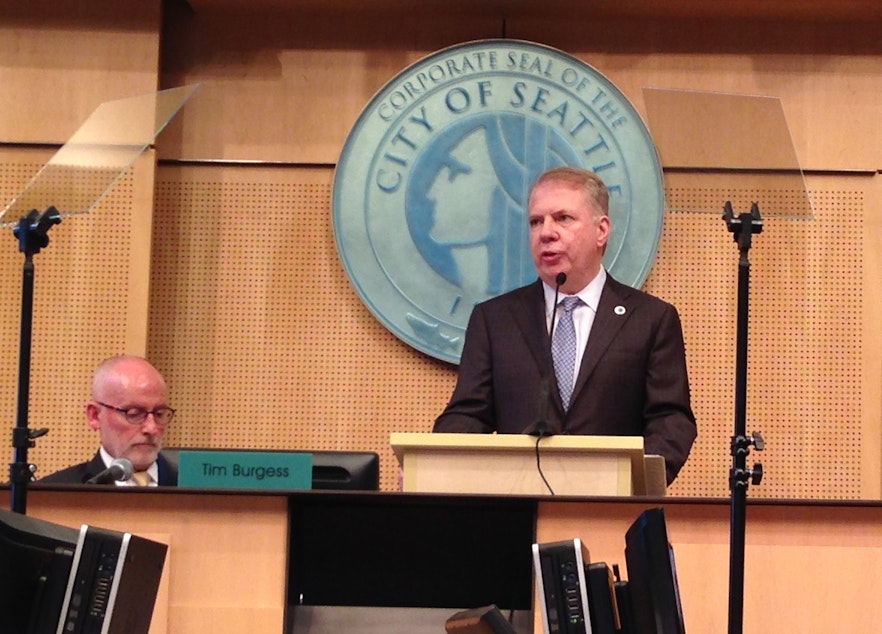Legal fund for mayor would break rules, Seattle ethics commission says

Seattle’s Ethics and Elections Commission has ruled that a proposed legal-defense fund for Mayor Ed Murray would not comply with the city's ethics code.
Murray is facing a lawsuit alleging that he raped an underage teen boy in the mid-80s.
Attorneys for the proposed defense fund say his legal bills will likely reach $1 million, and he does not have the personal resources to cover the costs.
At the beginning of the month, the attorneys asked the commission to weigh in on whether the public could chip-in to help pay Murray’s fees.
"I think it's important just in general to make sure that our officials aren't able to be sued in a very aggressive manner and not be able to defend themselves. There's a lot of problems with that,” said attorney Taki Flevaris.
In a letter to the commission, Flevaris and a colleague argued that the legal-defense fund was crafted in a way that avoids ethical conflicts.
“An independent legal defense fund that ensures contributions are anonymous provides sufficient assurances against corruption and its appearance,” the letter states.
Flevaris said the proposed fund would also be handled by an independent trustee, and donors would have to sign non-disclosure agreements.
But the Ethics and Elections Commission said Tuesday that wouldn’t fly. Commissioners said the proposal, as it stands, wouldn't be legal.
Of specific concern is a section of the city’s ethics code that prevents officials from receiving gifts that create an appearance of impropriety or are an attempt to curry favor.
Flevaris argued that their focus on anonymity satisfies that clause. The letter sent to the commission states: "Anonymity ensures the absence of impropriety because an official cannot give favors to someone who is unknown to him."
However, that didn't convince commission chair Eileen Norton.
"We're being asked to approve a mechanism for an elected official to solicit unlimited amounts of money from anonymous donors," Norton said.
Norton said that doesn't fit with the city's values of transparency and accountability.
Executive director and non-voting member of the commission Wayne Barnett also said making donations anonymous is not enough.
"If someone with a significant interest in city business makes a substantial contribution to the legal defense fund, what I heard the commission say is that a reasonable person would still believe that that was intended to influence that city action," Barnett said.
Barnett said it's unlikely that the source of donations would remain unknown, especially since the non-disclosure agreements intended to ensure anonymity are essentially unenforceable.
Seattle does not have a law that specifically deals with legal defense funds for public officials. And commission chair Eileen Norton said without one, she did not see a path forward for a legal-defense fund.
The commission voted unanimously Tuesday to have a written opinion drafted saying the current proposal doesn't comply with the city's ethics rules. Executive director Wayne Barnett said he would have the opinion written soon.
Attorneys for the fund say they'll go back to the drawing board and may come back with an altered proposal.
The commission's decision will not apply to Murray when he leaves office and is no longer an elected official. Murray announced this month that he won’t seek re-election.
